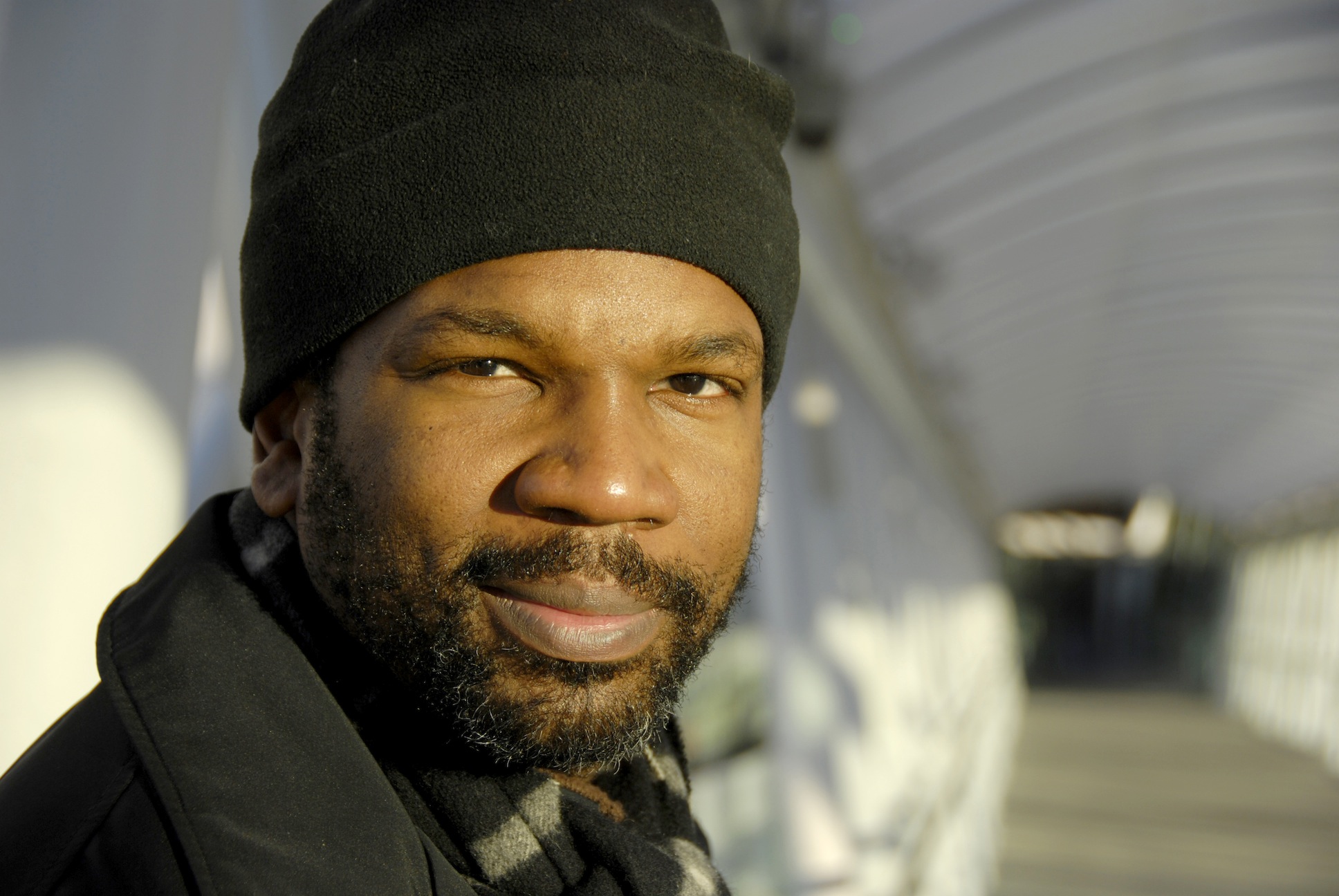
The race and Pedagogy Initiative, with support from the Catharine Gould Chism Fund, has sponsored a new three-part series here at Puget Sound that explores issues of racial justice and educational reform. The series is entitled “American Voices: Invisibility, Art, and Educational Justice” and features the work of various scholars, educators, artists and activists through public presentations and critical discussions. The series promotes non-traditional voices and aims to raise awareness to key issues while sparking community engagement.
On Feb. 25, distinguished professor Dexter Gordon began the night by welcoming the featured presenter, Paul Rucker, to Schneebeck Concert Hall. Professor Gordon spoke briefly about the Race and Pedagogy Initiative and emphasized that one of RPI’s educational outcomes was for students to “think critically, be aware, and be accountable.”
Part one of the series focused on the topics of education, race and criminal justice. Dr. Thelma Jackson, a self-declared restless public education advocate, led the presentation for the night with a telling account of the racial state of the United States education system.
“A major obstacle to our acting justly as a nation is the chronic system of denial of race and racism that is the elephant in the room,” she said.
Dr. Jackson’s talk centered around the connection between the underrepresented students in the classroom and their overrepresentation in the prison cells.
The history of the United States has paved a difficult and discouraging path toward education for students of color, and the effects of this deep-rooted discrimination is still unfolding in modern schools and institutions of learning.
“This nation and state struggles with an academic achievement gap which results from a lack of access, opportunity, equitable treatment, resources and inclusion … resulting in mass incarceration … for youth of color; particularly black youth,” Jackson explained.
Jackson mentioned how “America is the land of the free, yet it is less free than any other country on the earth, in that it incarcerates a greater portion of its citizens than any other, about one out of every 100 adults.” She urged listeners to reverse the focus from incarceration to education before introducing Paul Rucker to the stage.
Paul Rucker is an acclaimed cellist, composer and activist who has been researching and educating about the interconnection between the race and criminal justice system for several years.
He narrowed his presentation down to three main questions: Why should you care?; Who is responsible? and What can we do?
Rucker summarized the problem of apathetic disconnect into one question: “How do you have a conversation with really smart people who don’t share the same concerns?”
Throughout the night the prison system was identified as the major industry responsible for the state of mass incarcerations. As Rucker said, “Prisons are profitable.” When roughly 2.3 million people a year are locked away at the expense of $50,000 each, eventually those figures add up to a lot of money funneled into the prison system.
In response to what can be done about the complex cradle-to-prison pipeline, Rucker offered a simple solution: “We can talk about it.”
He said that people can offer “a little education about the broken system because we don’t talk about the systems that are broken … especially the ones that are profitable.” Rucker openly challenged the idea of ignoring issues that are difficult to talk about, because the greatest compromise comes out of acknowledging another person’s perspective.
“Not talking about something doesn’t make it go away; it makes it stronger in many ways,” he said.
After the conversation, Rucker sat down to play some compositions on his cello for the audience. The compositions were guided by narratives, like the sound of an argument, taking responsibility and the importance of caring for criminal justice, race and education issues.
The broken education system, prison system and racial dynamic in the United States do not need to continue on the same path. Students, staff, faculty and community members can all make a difference in breaking the cycle of mass incarceration by simply becoming informed, spreading the conversation and being actively aware of the impact one person can make in our society.
PHOTO COURTESY / WENDY JOHNSON
